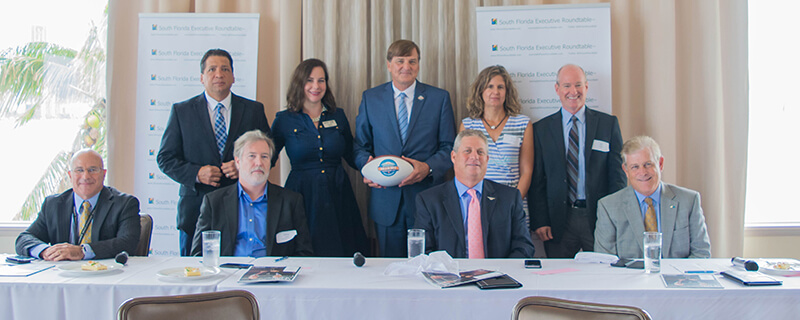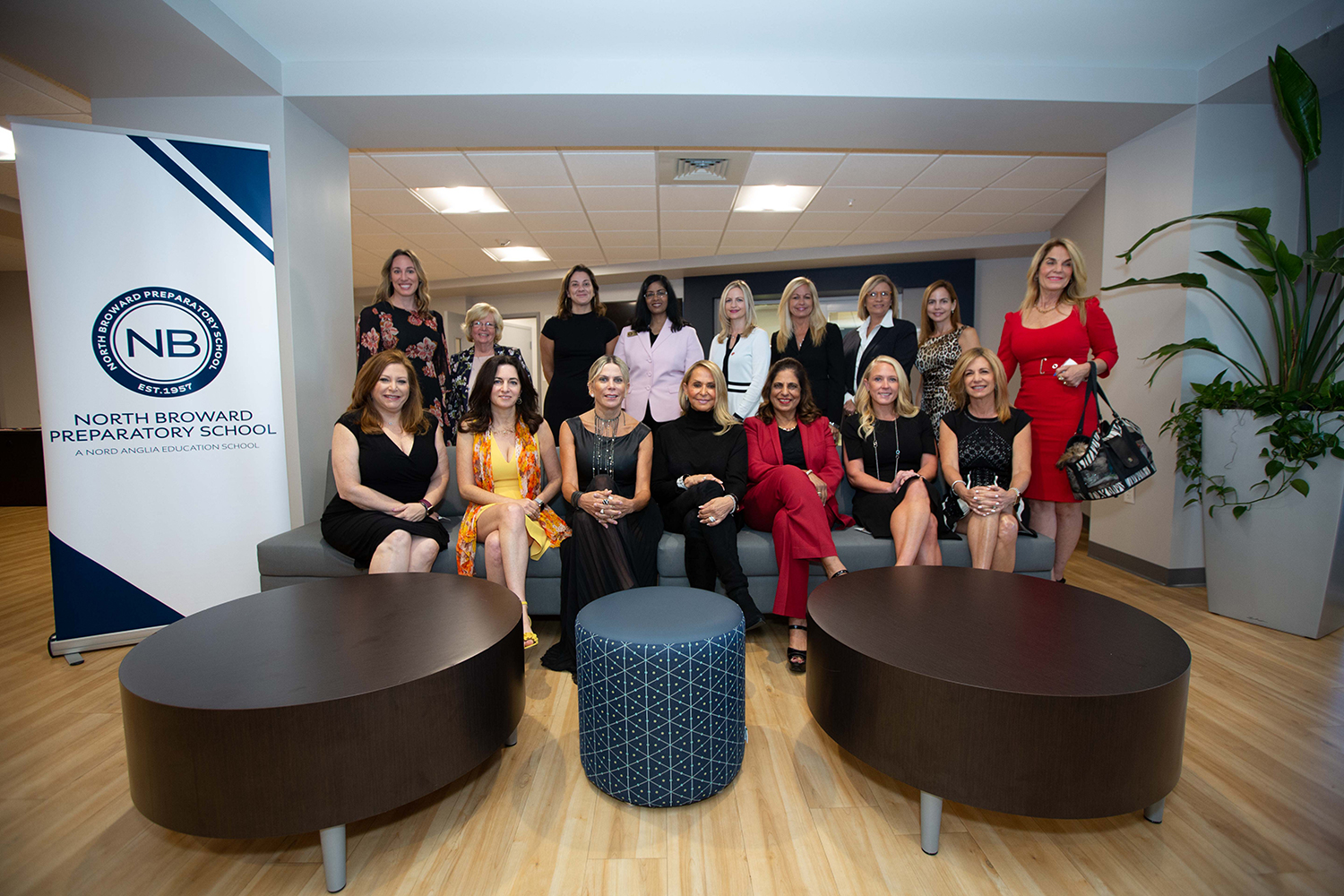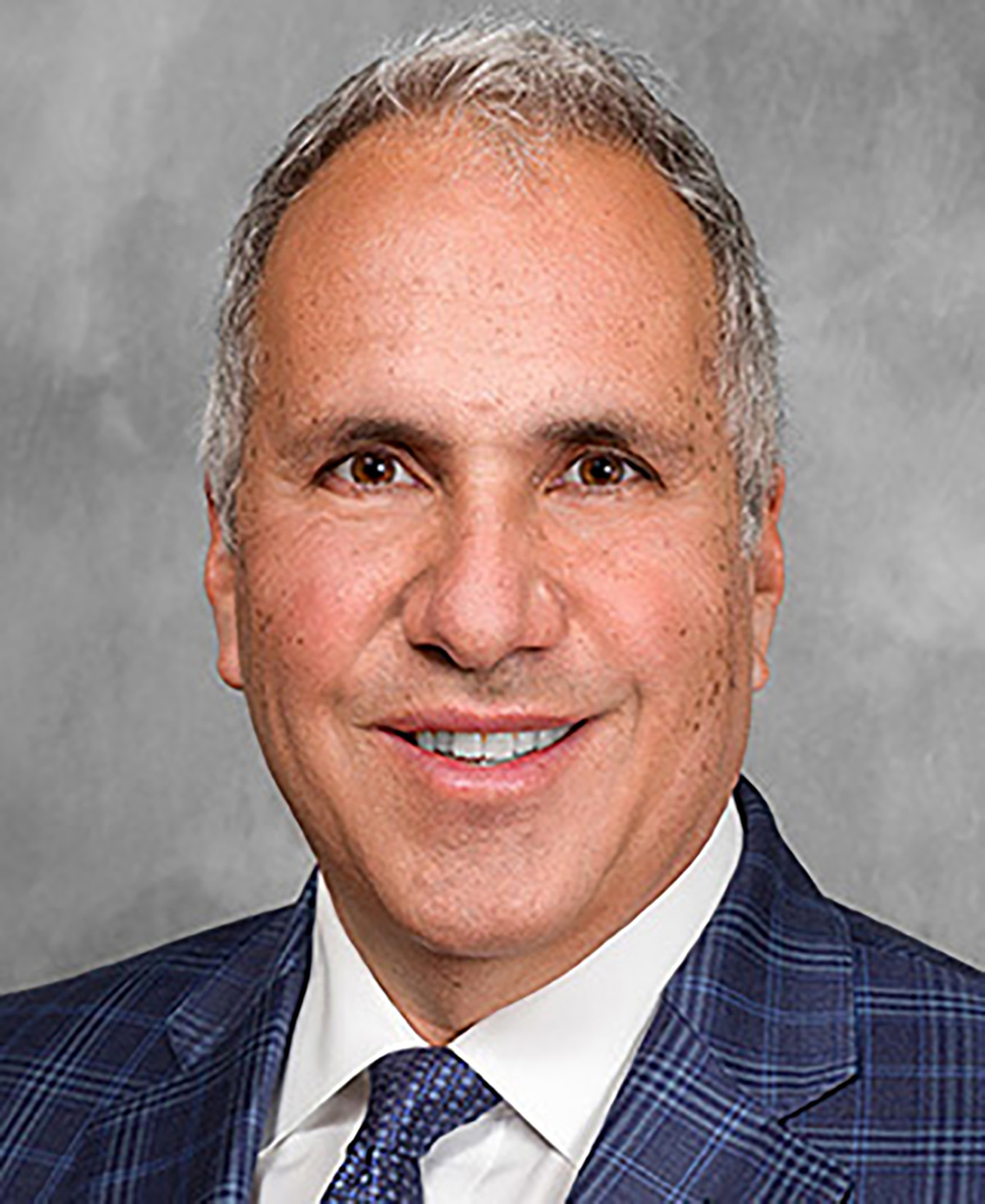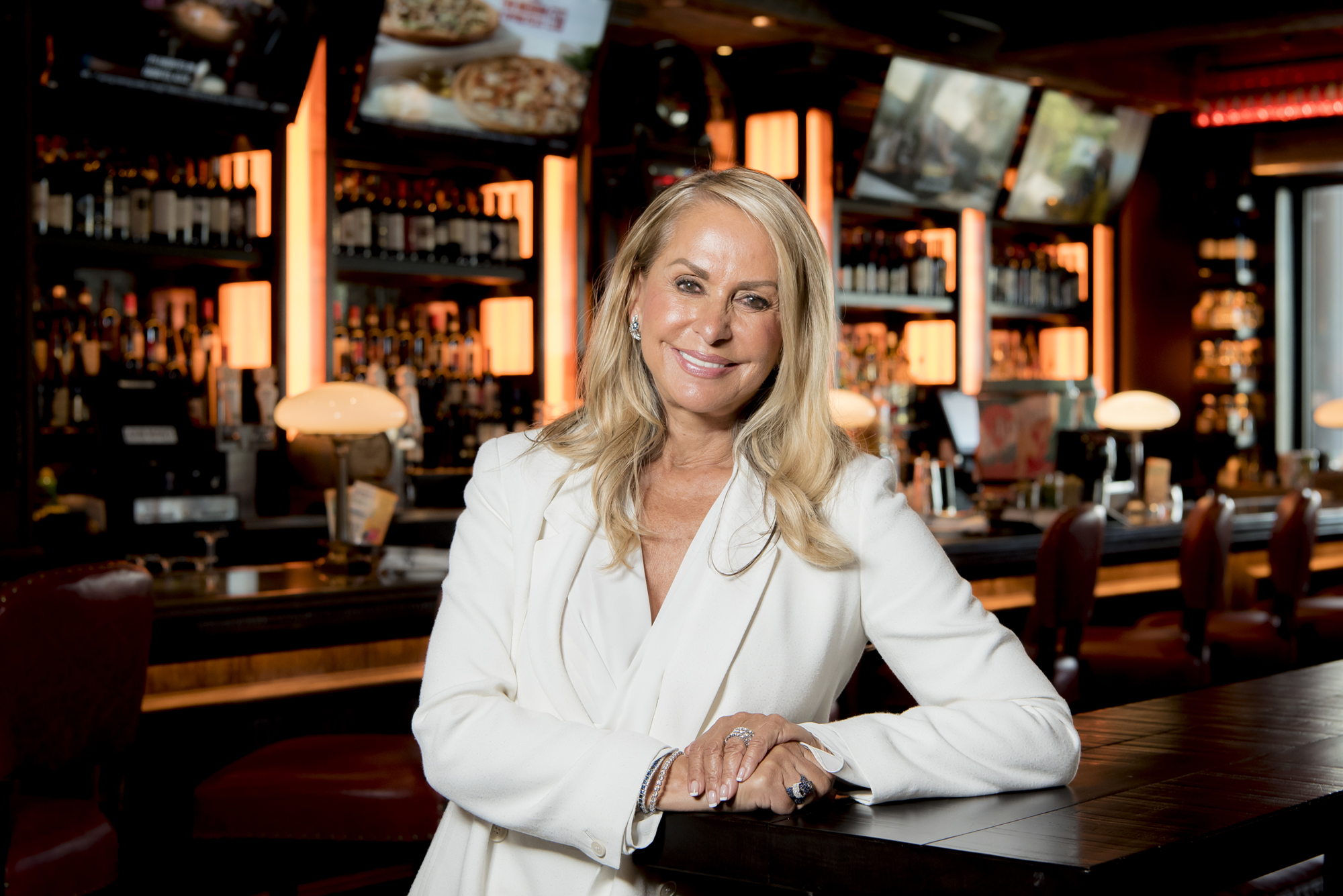Clorox executive, aviation leaders provide insights
Clorox has a well-established brand, but it’s keenly focused on changes in the consumer market in the era of Amazon.
“The issue is, the consumer now isn’t just looking to go to the store and shop and buy. But they may buy from seven different websites, the corner store—and how do we make sure that we have the right products, experiences and marketing for that consumer?” asks Michael Costello, senior vice president and general manager international for Clorox.
Costello was one of three panelists on a South Florida Executive Roundtable panel on innovation and change. Joining him were Joseph Napoli, chief of staff and senior policy adviser for the Miami-Dade Aviation Department, which operates Miami International Airport, and Aviv Tzur, CEO of AVbiz Aerospace and president of the Greater Miami Aviation Association.
The executive-level luncheon was held at the Rusty Pelican in Key Biscayne and was moderated by Gerry Litrento, senior executive vice president of BankUnited. SFBW is the exclusive media sponsor. For more information about the roundtable, visit sfexecroundtable.com.
Here are the takeaways:
All of us in this room can identify with the concept of “innovate or die.” How do you and your organizations define innovation?
Tzur: For me, innovation is a great buzzword, but it’s about good ol’ change. I’m a firm believer you have to endorse, adapt and you have to always strive to change. You cannot get stagnant. Today, I wear two hats—I have my own private company as well as my organization. When I talk about change, I look at what the aviation industry is faced with. Twenty years ago, we would try to respond to ad hoc problems that airplanes would have with maintenance, but today we are looking into predictive maintenance, so down the line a technician may have a laptop hooked up to the engine and see what the problem is and fix it. For me, the people who are going to drive the change are not yet aviators. The investment in change is going to be in human capital.
Costello: We have a definition for product innovation, which is a product with a better benefit or a new product for you. We also have commercial innovation, which could be a business model or how we talk to you. For a while, we started putting a lot of Clorox products inside of Home Depot as a new channel. We publicly measure and disclose our innovation numbers year by year because, for us, it is an important piece internally, which we measure for our investors. The way you stay ahead in the product industry is by innovating with new products and new benefits.
Napoli: Innovation is really about doing things better. A lot of people don’t realize is we have competitors—Atlanta, Dallas and Panama airports are huge competitors. Panama put a lot of money into their airport. They see themselves as the natural hub to Latin America and the Caribbean. Especially in this world with Twitter and social media, all it takes is one passenger to say “I’m never going to MIA again,” and that gets tweeted a bunch of times. We are trying to do things better and create an environment where employees are encouraged to take risks and bring in new ideas, new processes to do things better. Look at the airport—just think about how it was 10 years ago, three years ago. I’m sure a lot of you travel internationally and have gone through Customs, where there was a long wait. And what we have done now, 50 percent of our passengers use automatized systems to get through our lines faster.
Are you finding that you can source talent locally? Are the local universities helping you? How hard is it to attract people from outside our community?
Costello: We run our international and Latin America operations out of Miami. Most of our talent we have in the offices are from somewhere else. They are from either our headquarters, which is in Oakland, California, or they are from other countries and moved here because of the skills they have.
Tzur: I’m a big fan of Miami and the talent we have here. If you look at the evolution of universities here, we have tremendous talent here. I think for organic growth, we have a great pool of people to pull from, but the challenge is that they want to stay here and not go to other cities.
Napoli: I think the talent in South Florida is definitely sufficient. Miami Dade College has an aviation program. The talent pool is here. At the airport, there’s every imaginable competency that you need. We own all of the property, so real estate is huge. Finance, information systems, human resources … it’s not just aviation. Also, we have extensive internships with all the local universities and some of the statewide ones. We also have a program where we bring in five administrative trainees every year. The aviation industry is so passionate that we don’t have trouble keeping people.
What’s the biggest challenge you see over the next three to five years?
Napoli: Our biggest challenge is growth. An airport that is not growing is an airport that is dying, because naturally every year more people fly. But, fortunately, we are growing both in passenger and cargo. There’s no physical place now for us to grow; we have to redevelop our existing facilities. A lot of that is looking at new ways of building—perhaps in our cargo area, going vertical instead of outward.
Tzur: We are a very cyclical industry. Our normal cycle is seven to eight years, and we’ve been on a high since 2008, 2009, and everybody is getting nervous. And [an aviation conference] panel asked if there are any storm clouds ahead. From my perspective, there is a very big cloud, and that is there is a lack of talent coming into our industry. There was a survey by Boeing that within the next 20 years, we are going to have a shortage of 100,000 pilots, 250,000 mechanics. That’s why we are so big on investing in education.↵








